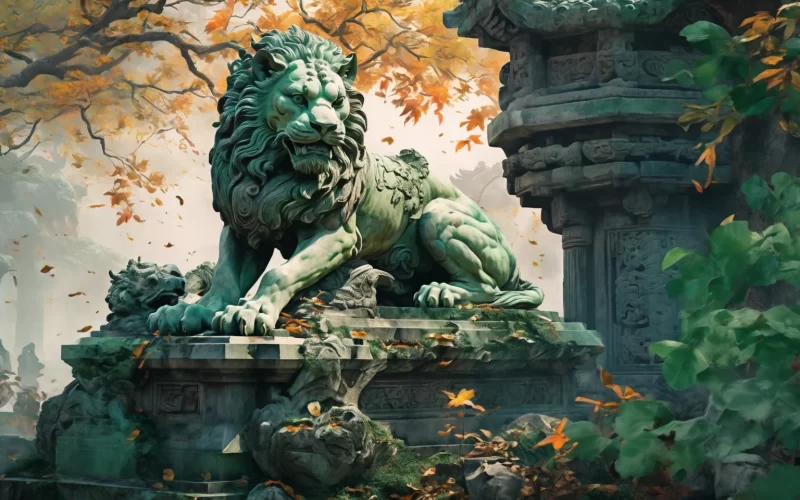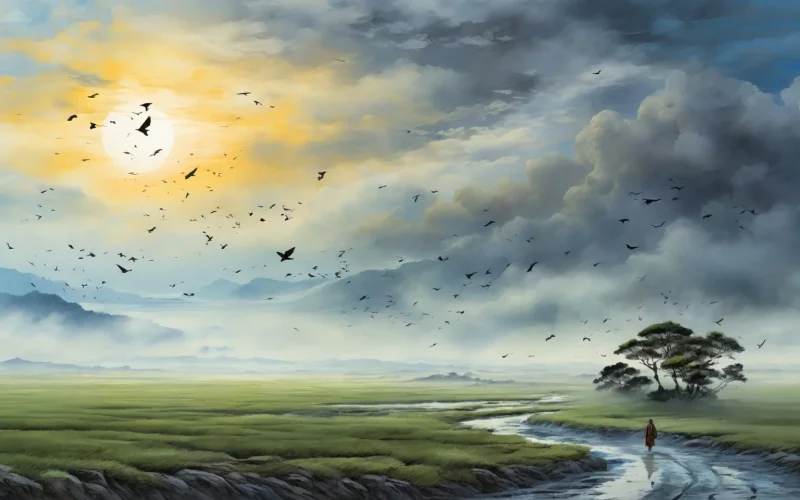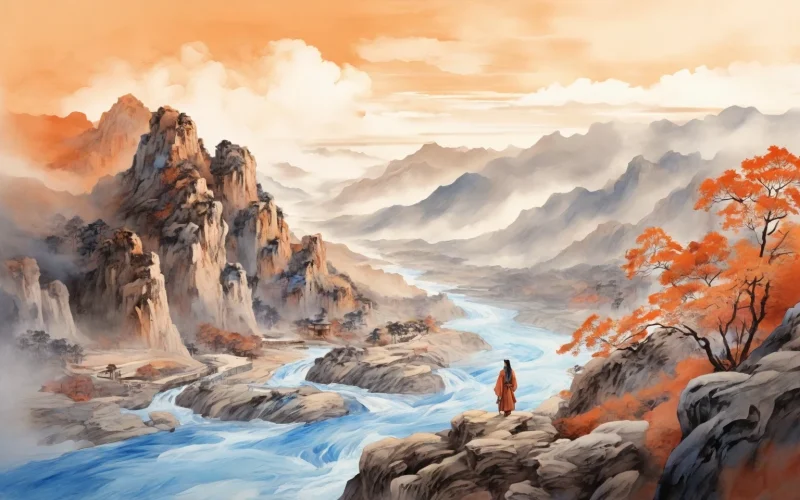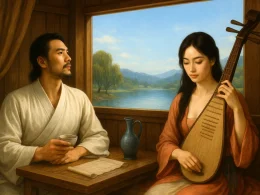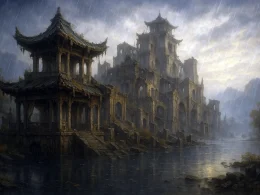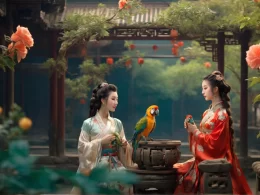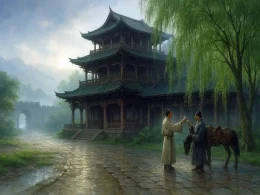Spring fades when petals on petals fly as they please;
It grieves me to see dots on dots waft in the breeze.
Enjoy the blooms passing away before your eyes;
Do not refuse to drown your grief in wine and sighs!
In the riverside halls kingfishers build their nest;
Before the tomb the stone animals lie at rest.
The law of Nature tells us to enjoy as we may.
Why spoil our joy by sheer vanity of the day?
Original Poem:
「曲江二首 · 其一」
杜甫
一片花飞减却春,风飘万点正愁人。
且看欲尽花经眼,莫厌伤多酒入唇。
江上小堂巢翡翠,苑边高冢卧麒麟。
细推物理须行乐,何用浮名绊此身。
Interpretation:
This poem was written in 757, during the An Lushan Rebellion, a period of turmoil and instability. Du Fu, having experienced the fall of Chang’an, found himself in a state of distress and disillusionment. At the time, he was neglected by Emperor Suzong and held an official position without real power. In Qujiang, he uses the imagery of falling spring flowers to mirror his inner turmoil, expressing his deep understanding of life's impermanence and the passage of time. Though physically present in Chang’an, his political disappointment and personal hardships filled the poem with a sense of sorrow and resentment.
First Couplet: "一片花飞减却春,风飘万点正愁人。"
Through the depiction of falling flowers, Du Fu conveys the sense of spring’s end. The image of a single petal drifting symbolizes the gradual retreat of spring, while the countless blossoms scattered by the wind intensify the poet’s sorrow over the fleeting nature of time.
Second Couplet: "且看欲尽花经眼,莫厌伤多酒入唇。"
The poet laments the inevitable decline of spring’s beauty. The phrase “flowers wither before my eyes” suggests a sense of powerlessness against time, while the mention of wine indicates an attempt to drown his sorrows, highlighting the complex interplay between resignation and escapism.
Third Couplet: "江上小堂巢翡翠,苑边高冢卧麒麟。"
This couplet shifts the imagery to abandoned imperial gardens and desolate tombs, evoking a sense of decline and loss. Once vibrant and full of life, these places have now fallen into neglect, symbolizing the transient nature of power and glory.
Fourth Couplet: "细推物理须行乐,何用浮名绊此身。"
Here, the poet contemplates the impermanence of all things. He questions the pursuit of worldly recognition, advocating instead for seizing the joys of the present moment. The underlying message is one of disillusionment with ambition and an acceptance of life’s natural ebb and flow.
Writing Characteristics:
This poem masterfully employs vivid contrasts to evoke a deep sense of impermanence. Through carefully chosen natural imagery—falling petals, forgotten gardens, and mythical creatures—Du Fu paints a picture of both personal and historical decline. The poem’s structure builds gradually, leading from sorrowful reflection to philosophical acceptance. Its concise yet profound language leaves a lasting emotional impact.
Overall Appreciation:
Qujiang is not merely a meditation on nature’s cycles but a deeply personal reflection on life’s transience. By lamenting the fading of spring and the desolation of once-glorious sites, Du Fu projects his own disappointment and sorrow. However, in the final couplet, he arrives at a resolution: to release the burdens of ambition and embrace the present. This fusion of personal struggle and broader philosophical insight makes the poem both poignant and timeless.
Insights:
Du Fu’s poem serves as a reminder of life’s fleeting nature and the futility of clinging to material success. It urges us to cherish the present rather than dwell on loss or chase after hollow prestige. In a world where change is inevitable, the poet suggests that true wisdom lies in embracing life as it comes, savoring its fleeting beauty, and finding peace in the acceptance of impermanence.
Poem translator:
Xu Yuan-chong (许渊冲)
About the poet
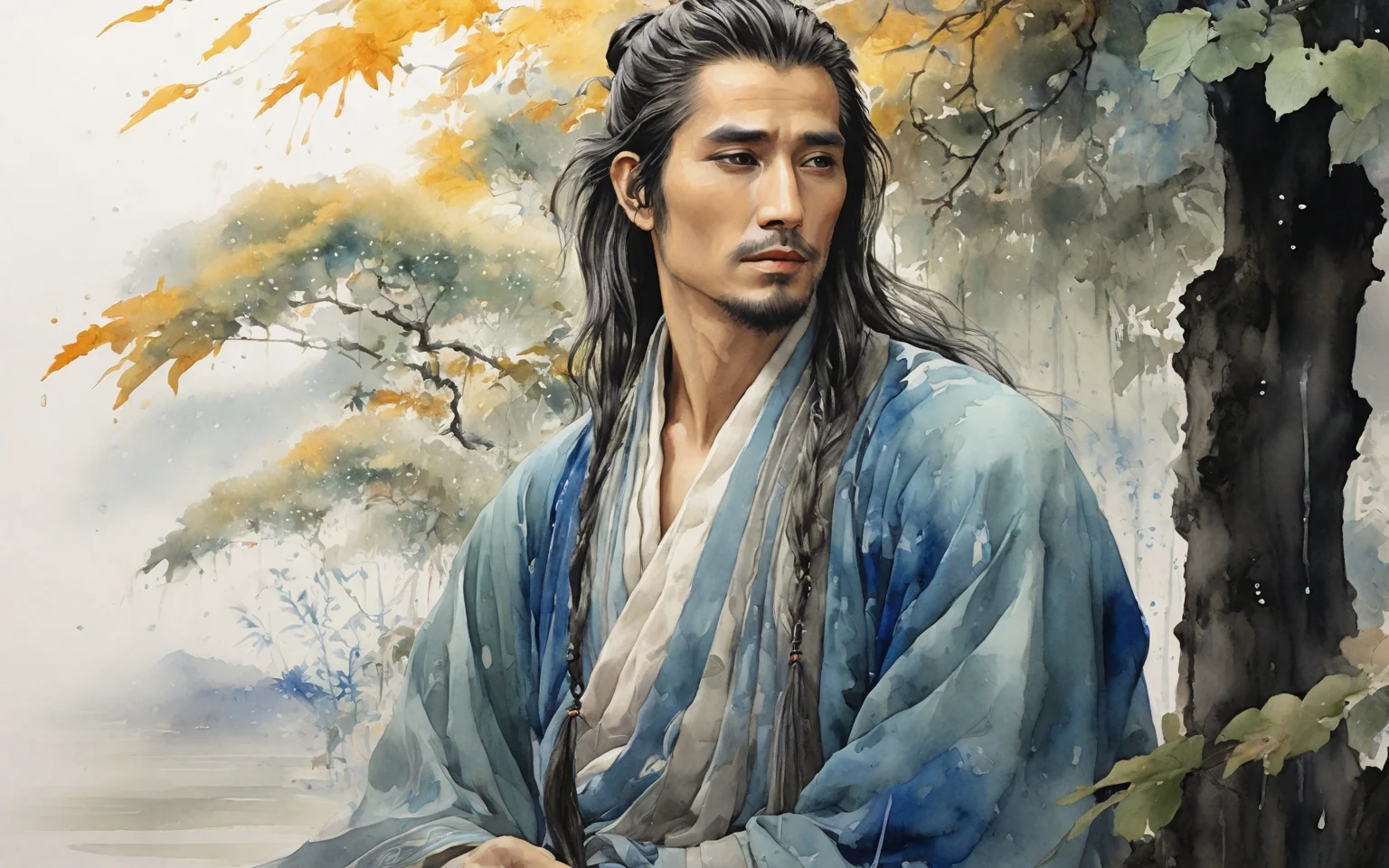
Du Fu (杜甫), 712 - 770 AD, was a great poet of the Tang Dynasty, known as the "Sage of Poetry". Born into a declining bureaucratic family, Du Fu had a rough life, and his turbulent and dislocated life made him keenly aware of the plight of the masses. Therefore, his poems were always closely related to the current affairs, reflecting the social life of that era in a more comprehensive way, with profound thoughts and a broad realm. In his poetic art, he was able to combine many styles, forming a unique style of "profound and thick", and becoming a great realist poet in the history of China.





